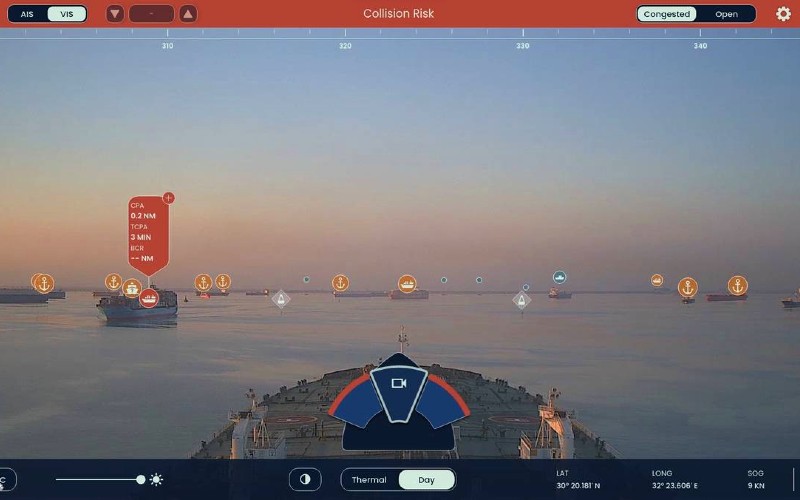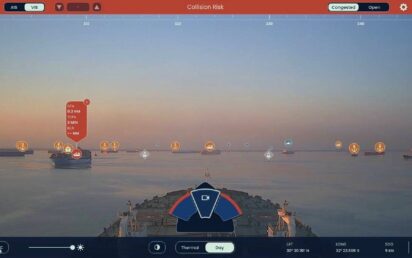An AI-based operational platform for ships has raised £18 million in new funding.
Orca AI’s solution is the first step in introducing autonomous features to vessels already on the water. In 2022, it powered the world’s first autonomous commercial ship voyage with NYK, and is now working on the second phase of fully autonomous ship technology to be rolled out in 2025.
Founded by naval technology experts Yarden Gross and Dor Raviv, Orca AI’s platform maximises voyage safety, operational efficiency and sustainability for ships and fleets.
It features a fully automated watchkeeper that processes multiple sources of visual information during navigation at sea, mimicking and enhancing human watchkeeping at the most complex marine traffic situations in real time.
In 2023, there were over 2,500 significant marine incidents. In the same period, working with the biggest global shipping companies including MSC, NYK, Maersk and Seaspan. Orca AI reduced close encounters by 33% and crossing events by 40% across 15 million nautical miles.
By detecting and alerting crew to high-risk marine targets, Orca AI optimises operations to avoid unnecessary manoeuvres and speed drops, reducing fuel burn and emissions. The improved navigational decisions enabled by Orca AI resulted in an average $100-300k saving in fuel per vessel per year (3-5%) and 172,716 tonnes of CO2 reduction last year.
TransportTech 50 – UK’s most innovative transport technology creators for 2023
Orca AI also enables proactive threat mitigation from diverse threats such as drone attacks and piracy by empowering personnel of vessels, to anticipate and counteract these risks, bolstering vessel security and protecting crews and sensitive cargo.
Orders for the platform will soon surpass more than 1,000 vessels. By raising this capital, Orca AI will be able to invest in technology, expand internationally, and grow. All of which will contribute to reducing maritime carbon emissions and improving efficiency and safety of navigation.
“Innovations in high-speed, low cost, global connectivity, such as with Elon Musk’s Starlink have opened the door for advanced technologies such as AI on board vessels to improve operational efficiency and safety,” said CEO Gross.
“It’s a welcomed pivotal moment, as despite the majority of global cargo transported by sea, the maritime industry has lagged behind industries such as aviation when it comes to keeping up with technological innovations.
“Ships deal with increasingly congested waterways, severe weather and low-visibility conditions creating difficult navigation experiences with often expensive cargo. We’ve recently proven forward-thinking companies that adopt our technology have seen huge operational improvements from year to year, in creating a safer and more efficient shipping industry.
“These improvements are crucial for shipping companies in meeting corporate sustainability targets, but importantly the benefits are far reaching beyond just the customers.”
The round was led by OCV Partners and Mizmaa Ventures, taking the total raised by the business to nearly $40m.
Hemi Zucker, managing partner at OCV, added: “Maritime transport is the lifeblood of international trade and the global economy. Over 80% of the volume of international trade in goods is carried by sea, a two trillion-dollar market by some estimates.
“While planes, trains, and automobiles have seen tremendous progress and investment in regards to autopilot and collision prevention, we believe that the shipping industry is still up for grabs and there is a category defining opportunity in autonomous ships – ships that captain themselves.”
Piing CEO: Super Bowl was a dream but ‘now a matter of time’


